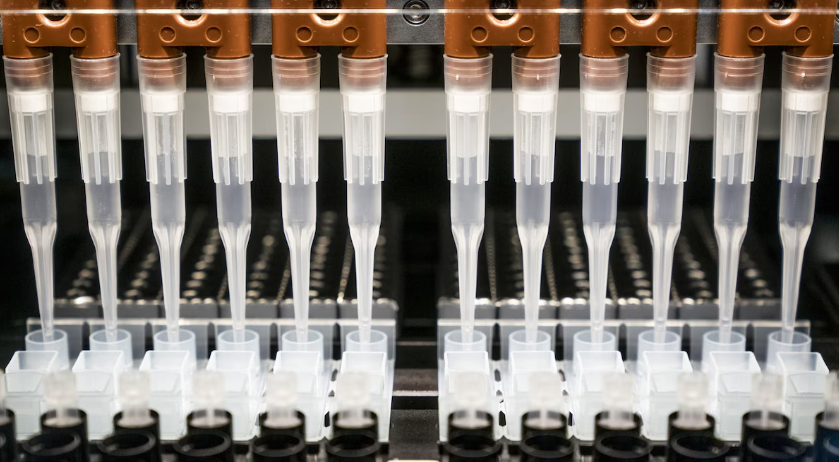PHARMACOGENOMICS/ GENETICS

Why do we use Pharmacogenomics (“PGX”)?
V-Labs America’s mission is to change and improve people’s lives by giving them and their doctors the information and therapeutic outcomes they need through pharmacogenomic testing.
Why shouldn’t a person’s medications take into account the variations in their genetic make-up and physical structure? Genetic information can be used to forecast how a person’s body will respond to and metabolize drugs. How a drug is metabolized can have a big impact on whether it is therapeutically effective or harmful. For instance, a medicine may not work if the body digests it too rapidly or too slowly. If a physician doesn’t sure which medication will be the best choice, they may have to choose a prescription based on prior experience or drug prescribing data in the hopes that the patient’s body will respond well to it. Pharmacogenomic research utilized in personalized medicine helps to reduce some of the mystery around drug effectiveness. Utilizing cutting-edge technologies and bioinformatics tools, V-Labs America screens and assesses the role of DNA mutations that are likely to affect drug pharmacokinetics (drug absorption, distribution, metabolism, and elimination) and pharmacodynamics (therapeutic target) as well as their impact on bioavailability, therapeutic response, and safety. These genetic variations will be utilized to assess the likelihood of negative drug reactions as well as the likelihood that a specific treatment would be beneficial on a specific person.
What is Pharmacogenomics (“PGX”) ?
Pharmacogenomics is the study of how a person’s DNA affects how they react to medications.
- Pharmacogenomic testing has the potential to improve clinical outcomes and increase the financial value of the healthcare system. Making pharmacogenomics available to physicians and patients can result in significant cost savings, according to a number of compelling studies.
- V-Labs America specializes in pharmacogenomics lab testing, which identifies genetic variants that affect the metabolism of therapeutic medications and the possibility of unfavorable results.
Having a list of the patient’s current medications as well as a list of potential drug-drug, gene-drug, and drug-gene-drug interactions may help a doctor better understand why a patient would respond to a medication in a particular way.
To help uncover mutations that potentially affect a person’s metabolism and/or response to medication, V-Labs America, a pharmacogenomics lab, tests more than 30 genes. A pharmacist at V-Labs America reviews a Personalized Medication Report following the pharmacogenomic analysis, which was conducted using a simple cheek swab sample, in order to look for potential gene-medication interactions, medication-medication interactions, and medication-gene-medication interactions. A tailored medication guide is also available, which includes medications by specialty under the headings “Use as Directed,” “Use with Care,” and “Suggest Alternate Medicine.” This list may be used by a prescriber to help them choose new or different medications for their patient. The report is a useful resource for helping patients and medical professionals decide on the best course of action.
Test Menu for Medication Management
Cytochrome P450 Enzymes: The Cytochrome P450 enzyme system, one of many metabolic systems, controls a substantial portion of the metabolism of medicines. A substrate is a material that an enzyme breaks down. Once a medication has been digested, a certain enzyme becomes “active” in the body, meaning some pharmaceuticals are also prescriptions for that enzyme. Drugs can be metabolized by people differently because of variations in the relevant enzymes. There are four classifications for each enzyme’s metabolic rate: normal metabolism, quick metabolism, intermediate metabolism, and poor metabolism.
